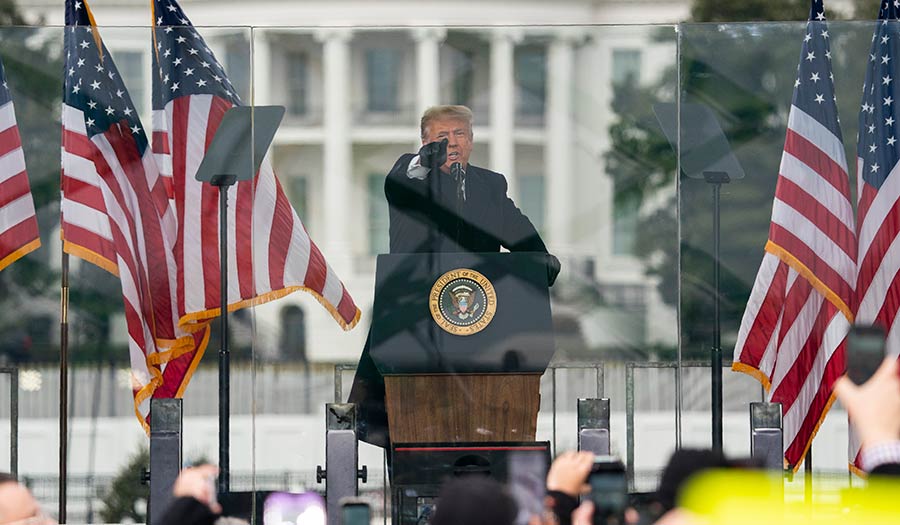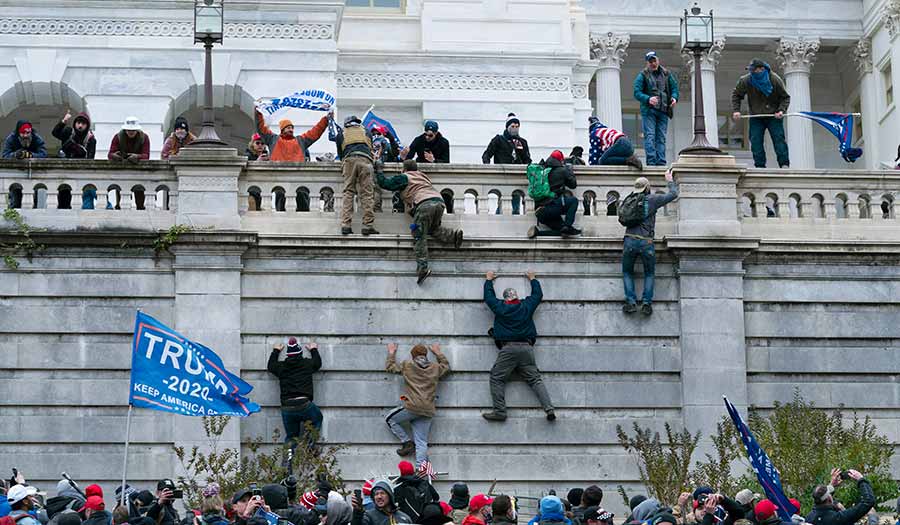 AP/Evan Vucci
AP/Evan Vucci
World News Desk
Learn the why behind the headlines.
Subscribe to the Real Truth for FREE news and analysis.
Subscribe NowWASHINGTON (AP) – Donald Trump’s acquittal at his second impeachment trial may not be the final word on whether he is to blame for the Capitol riot. The next step for the former president could be the courts.
Now a private citizen, Mr. Trump is stripped of his protection from legal liability that the presidency gave him. That change in status is something that even Republicans who voted on Saturday to acquit of inciting the January 6 attack are stressing as they urge Americans to move on from impeachment.
“President Trump is still liable for everything he did while he was in office, as an ordinary citizen, unless the statute of limitations has run,” Senate Minority Leader Mitch McConnell of Kentucky said after that vote. He insisted that the courts were a more appropriate venue to hold Mr. Trump accountable than a Senate trial.
“He didn’t get away with anything yet,” Mr. McConnell said. “Yet.”
The insurrection at the Capitol, in which five people died, is just one of the legal cases shadowing Mr. Trump in the months after he was voted out of office.
But Mr. Trump’s culpability under the law for inciting the riot is by no means clear-cut. The standard is high under court decisions reaching back 50 years. Mr. Trump could also be sued by victims, though he has some constitutional protections, including if he acted while carrying out the duties of president. Those cases would come down to his intent.
Legal scholars say a proper criminal investigation takes time, and there are at least five years on the statute of limitations to bring a federal case. New evidence is emerging every day.
“They’re way too early in their investigation to know,” said Laurie Levenson, a law professor at Loyola Law School and former federal prosecutor. “They have arrested 200 people, they’re pursuing hundreds more, all of those people could be potential witnesses because some have said ‘Trump made me do it.’”
What is not known, she said, is what Mr. Trump was doing during the time of the riot, and that could be the key. Impeachment did not produce many answers. But federal investigators in a criminal inquiry have much more power to compel evidence through grand jury subpoenas.
“It’s not an easy case, but that’s only because what we know now, and that can change,” Ms. Levenson said.
The legal issue is whether Mr. Trump or any of the speakers at the rally near the White House that preceded the assault on the Capitol incited violence and whether they knew their words would have that effect. That is the standard the Supreme Court laid out in its 1969 decision in Brandenburg vs. Ohio, which overturned the conviction of a Ku Klux Klan leader.
Mr. Trump’s impeachment lawyers said he did not do anything illegal. Mr. Trump, in a statement after the acquittal, did not admit to any wrongdoing.
Federal prosecutors have said they are looking at all angles of the assault on the Capitol and whether the violence had been incited.
Court cases that try to prove incitement often bump up against the First Amendment. In recent years, federal judges have taken a hard line against the anti-riot law. The federal appeals court in Virginia narrowed the Anti-Riot Act, with a maximum prison term of five years, because it swept up constitutionally protected speech. The court found invalid parts of the law that encompassed speech tending to “encourage” or “promote” a riot, as well as speech “urging” others to riot or involving mere advocacy of violence.
It is possible federal prosecutors will decide not to bring charges, and if Mr. Trump were indicted in one of the many other separate investigations, federal prosecutors could decide justice would be done elsewhere.
- Real Truth Magazine Articles
- AMERICAS
 Social Media Platforms Lock Down President Trump’s Accounts
Social Media Platforms Lock Down President Trump’s Accounts


